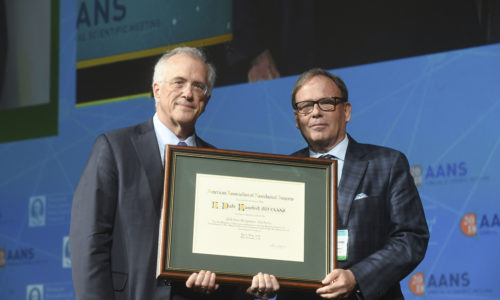Kurze Lecture
Gary Green, MD
Addressing the ethical issues of sports medicine, Dr. Green suggested the essential question, “How can we make sports safer without eliminating the essence of the sport?” Part of the answer is to watch and treat. An even more effective answer is to come to a better understanding of the pathophysiology of injuries and illness and somehow come between those and the players. Per Dr. Green, a physician’s job is not complete until the patient returns to his or her previous level of activity.
TBI is less common in baseball, but it does happen. Fifty percent of injuries happen to catchers, even though they are only one out of nine players on the field. In 2017, new rules were instituted to try to limit players’ exposure to situations that cause injury. This has achieved significant reduction in injury without changing the basics of the game.
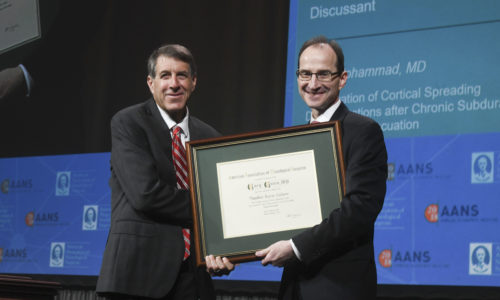
Schneider Lecture
Merwyn Bagan, MD, MPH, FAANS(L), and Michael M. Haglund, MD, PhD, FAANS
Session moderator Regis W. Haid Jr., MD, FAANS, guided the conversation through the participants’ thoughts on why humanitarian work is so important and how neurosurgeons can contribute time and resources.
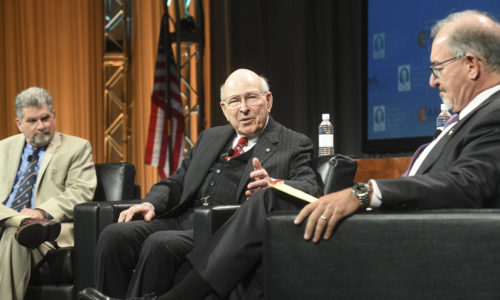
Dr. Bagan suggested there are limited opportunities for service in the U.S., but there is great need throughout the rest of the world, with some locations having no access to neurosurgeons. He focused on Nepal, where 23 million people were served by a single neurosurgeon.
Dr. Haglund encapsulates international service into the three T’s: Technology (seek donations from hospitals, purchasing agents, company representatives), Twinning (all levels raise the entire team) and Training (also known as ‘teach them to fish’).
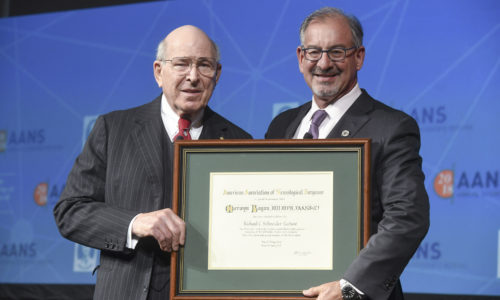
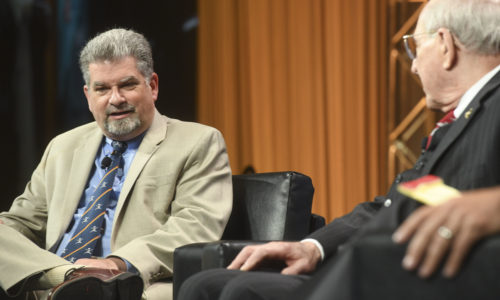
The Humanitarian Award
Jack P. Rock, MD, FAANS
Dr. Rock, who has been working with the Foundation for International Education in Neurological Surgery (FIENS) for 15 years, accepted his award. “I stand before you today humbled by this. I know people in the audience are more deserving. I thank Drs. Bagan and Dempsey for mentoring me and I thank my colleagues for allowing me the time to do international work.”
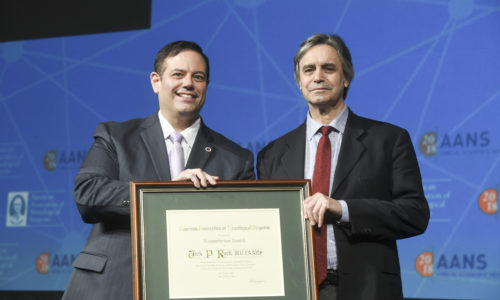
Van Wagenen Lecture
Dade Lunsford, MD, FAANS
Dr. Lunsford, a former Van Wagenen fellow, delivered “Jumpstarting Your Career in Neurosurgery,” focusing on the opportunities that came from his Van Wagenen Fellowship, which he spent in Sweden studying stereotactic radiosurgery. He concluded his lecture with the following advice: “Ride the next wave of innovation as you build your neurosurgical career. Go to the places that will give you special training so that you can come back and be an innovator.”
